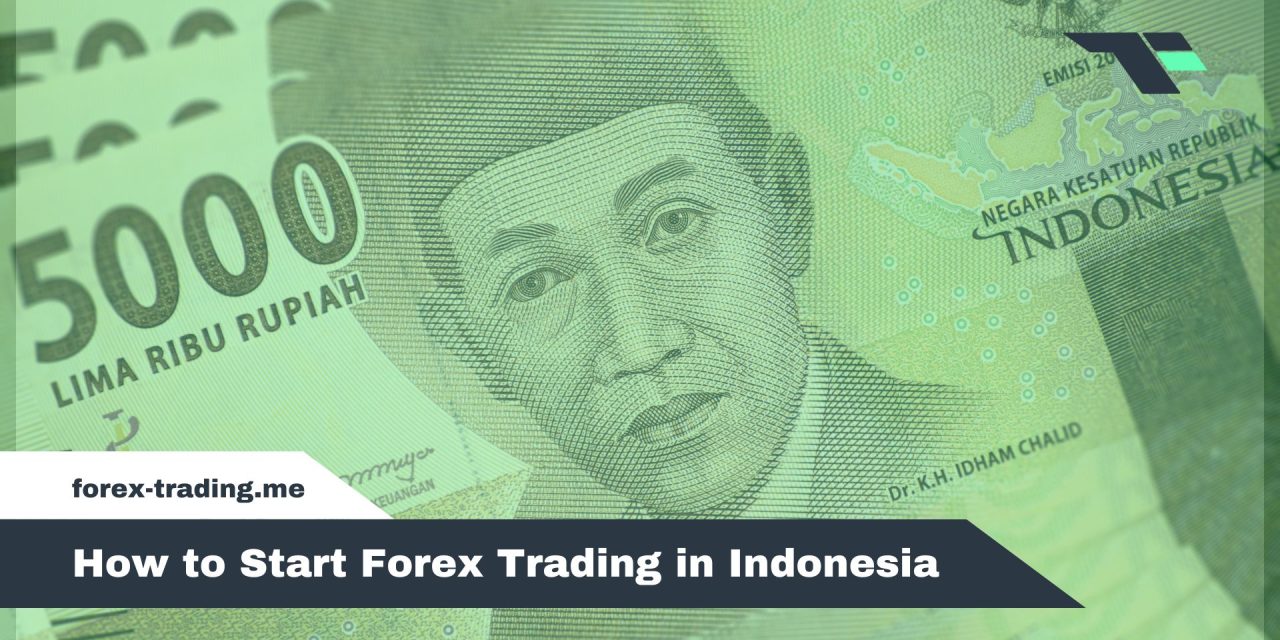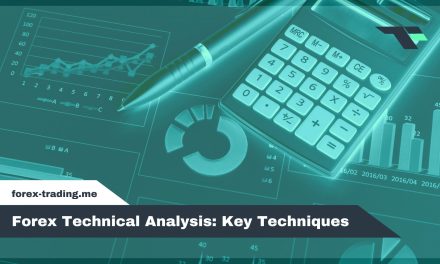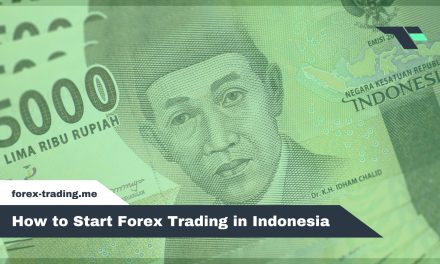
How to Start Forex Trading in Indonesia

Starting forex trading in Indonesia requires selecting a BAPPEBTI-licensed broker to guarantee regulatory compliance and fund safety. Traders must complete KYC verification using e-KTP and NPWP documents, then fund accounts through bank transfers or e-wallets. Popular currency pairs include USD/IDR, which trades actively during Jakarta’s 08:00-17:00 WIB session. Profits face progressive tax rates up to 30%, with mandatory annual reporting through SPT forms. The following thorough guide outlines each essential step for successful market entry.
Table of Contents
Understand Forex Trading in Indonesia
Indonesian Forex trading centers around the Indonesian Rupiah (IDR), which forms major currency pairs like USD/IDR that typically exhibit daily ranges of approximately 200 points. The Jakarta trading session, operating during Asian market hours, creates specific opportunities for traders to capitalize on regional economic developments and central bank policies that directly impact rupiah volatility. Understanding these local market dynamics, including how IDR pairs respond to domestic inflation data and Bank Indonesia’s monetary policy decisions, provides traders with essential context for timing their market entries and exits effectively.
How Rupiah pairs work
Currency pairing mechanics form the foundation of understanding how the Indonesian Rupiah operates within the global forex market. The Rupiah functions as either the base or quote currency in major pairs, with USD/IDR representing the most actively traded combination. In this pairing, traders buy or sell US dollars against Indonesian Rupiah, with price movements reflecting the relative strength between these economies.
| Currency Pair | 2024 Average Rate | Daily Volatility |
|---|---|---|
| USD/IDR | 15,300 | ±1.2% |
| EUR/IDR | 16,850 | ±1.4% |
| GBP/IDR | 19,200 | ±1.6% |
Each pip movement in USD/IDR equals approximately IDR 1,000 for standard lots, making position sizing calculations essential for Indonesian traders. Exchange rate fluctuations depend on economic indicators, monetary policy differences, and global market sentiment affecting both currencies in the pair.
Jakarta trading hours & sessions
Three distinct trading sessions dominate the global forex market, with Jakarta’s position in the GMT+7 timezone creating strategic advantages for Indonesian traders seeking ideal market entry points. The Jakarta session operates from 08:00 to 17:00 WIB, coinciding with the broader Asian trading period when regional currencies experience heightened activity. Indonesian traders benefit most during the 15:00-17:00 WIB window, when Jakarta’s session overlaps with London’s opening, generating peak liquidity conditions and tighter spreads.
This overlap period offers excellent trading opportunities as both Asian and European markets remain active simultaneously. Currency pairs involving the Indonesian rupiah typically show increased volatility during local business hours, while major pairs like EUR/USD demonstrate enhanced liquidity during the London-Jakarta overlap, providing traders with improved execution quality and reduced transaction costs.
Choose an Indonesian-Regulated Broker
Selecting a properly regulated broker represents the most critical decision for Indonesian forex traders, as it determines both fund safety and legal compliance. Indonesian traders must choose between brokers licensed by BAPPEBTI (Commodity Futures Trading Regulatory Agency) or OJK (Financial Services Authority), with BAPPEBTI specifically overseeing forex and derivatives trading while maintaining stricter capital requirements of IDR 100 billion minimum. These regulatory frameworks also influence practical trading considerations, including the availability of rupiah-denominated accounts and competitive spread structures that can greatly impact trading costs.
BAPPEBTI vs. OJK licensing
When choosing a Forex broker in Indonesia, traders must understand the distinct regulatory frameworks that govern financial markets within the country. The Commodity Futures Trading Regulatory Agency (BAPPEBTI) specifically oversees futures and Forex trading activities, issuing dedicated licenses for brokers operating in these markets. Conversely, the Financial Services Authority (OJK) maintains broader supervision over various financial products and services, covering banking, insurance, and capital markets.
For Forex trading purposes, traders should prioritize brokers holding valid BAPPEBTI licenses, as this regulatory body specializes in derivatives and currency trading oversight. Since 2023, Indonesian authorities have banned non-regulated brokers from operating within the country, making proper licensing verification essential. While OJK-licensed entities operate legitimate financial services, BAPPEBTI certification specifically indicates compliance with Forex trading regulations and consumer protection standards.
Rupiah account options & spreads
Beyond regulatory compliance, Indonesian traders face fundamental decisions regarding account currency denominations and associated trading costs that directly impact their profit margins. Local brokers typically offer IDR-denominated accounts alongside USD options, each presenting distinct cost structures. IDR accounts provide currency matching benefits for Indonesian traders, eliminating conversion fees when depositing or withdrawing funds.
However, spreads on major pairs like USD/IDR average 50 pips through local brokers, considerably higher than international alternatives. USD accounts with offshore brokers can offer spreads as low as 10 pips on major currency pairs, but traders incur currency conversion fees during transactions. Additionally, overnight swap rates vary between account types, affecting positions held beyond daily trading sessions. Traders must evaluate whether lower spreads offset conversion costs based on their trading frequency and volume.
Navigating broker licensing and account currencies can feel like balancing trust and cost. This snapshot distills key differences—so you can swiftly choose the right regulator and currency option for your Indonesian Forex journey.
| Aspect | BAPPEBTI-Licensed Brokers | OJK-Licensed Brokers | IDR Accounts | USD Accounts |
|---|---|---|---|---|
| Regulatory Focus | Dedicated Forex & derivatives | Broad oversight of banking, insurance & capital markets | N/A | N/A |
| Minimum Capital Requirement | IDR 100 billion | Varies by service type | N/A | N/A |
| Fund Protection | Specialized consumer safeguards | General financial protections | Eliminates currency conversion risk | Exposed to FX fluctuations |
| USD/IDR Spread | ~50 pips | ~50 pips (if offering Forex) | ~50 pips | As low as 10 pips |
| Currency Conversion Fees | N/A | N/A | None | 0.1–0.3 % per transaction |
| Overnight Swap Rates | Broker-dependent, often competitive | Broker-dependent | Generally higher | Generally lower |
| Ideal For | Active Rupiah traders & hedgers | Diversified investors | Traders prioritizing local convenience | Volume-focused traders seeking tight spreads |
Open & Fund Your IDR Trading Account
Once a trader selects a regulated broker, the account opening process requires completing Know Your Customer (KYC) verification using standard Indonesian identification documents, specifically an e-KTP and NPWP for tax compliance. The verification process typically completes within 24 hours, allowing traders to proceed with funding their accounts through various local payment methods. Indonesian residents can deposit funds using traditional bank transfers or popular e-wallet services like OVO and GoPay, with most electronic payments processing in under two hours.
KYC with e-KTP & NPWP
After selecting a regulated broker, prospective traders must complete the Know Your Customer (KYC) verification process using their electronic ID card (e-KTP) and taxpayer identification number (NPWP) to open and fund an IDR trading account. Brokers require clear, high-resolution photos of both documents for identity verification. The e-KTP serves as primary identification, while the NPWP confirms tax compliance status with Indonesian authorities.
Traders must guarantee document images are legible, with all corners visible and information clearly readable during upload. Incomplete or blurry documentation can delay account activation by up to three days, extending the verification timeline considerably. Most brokers process complete KYC submissions within 24-48 hours when all required documents meet their quality standards. Successful verification enables access to trading platforms, deposit functions, and full account features for Indonesian rupiah transactions.
Bank transfer & e-wallet top-ups
Indonesian traders have two primary funding options for their verified trading accounts: traditional bank transfers and modern e-wallet services, each with distinct advantages regarding cost, speed, and convenience. Bank transfers represent the most cost-effective method, typically incurring no additional fees from brokers while requiring one to two business days for processing. Major Indonesian banks facilitate these transactions through payment gateways that connect directly to broker platforms.
E-wallet deposits offer superior speed with near-instant credit to trading accounts, though they generally charge approximately one percent in transaction fees. Popular e-wallet services integrate seamlessly with broker platforms, enabling rapid market entry. Transaction limits vary greatly between methods, with bank transfers often supporting higher amounts while e-wallets may impose daily or monthly restrictions that traders should verify before depositing.
Getting your IDR account up and running hinges on two pillars: seamless identity checks and swift, cost-effective funding. Here’s a side-by-side view of what to expect at each stage:
| Step | Requirement/Method | Processing Time | Cost | Insider Tip |
|---|---|---|---|---|
| KYC Verification | Upload clear e-KTP + NPWP photos | 24–48 hours | Free | Ensure document edges are visible to avoid delays |
| Bank Transfer Deposit | Local bank transfer via gateway | 1–2 business days | Typically free | Use major banks for higher daily limits |
| E-Wallet Top-Up | OVO or GoPay integration | Under 2 hours | ~1% fee per transaction | Check your daily limit before funding |
Practice Risk-Free on an Indonesia Demo
After establishing a funded trading account, new Indonesian traders should shift to demo trading platforms that support IDR-denominated positions, allowing them to practice currency pair analysis without risking actual capital. These simulation environments typically mirror real market conditions by incorporating the Indonesian rupiah’s characteristic volatility patterns, including daily fluctuations that can reach ±0.5% during active trading sessions. Demo accounts provide essential experience with order execution, spread calculations, and margin requirements specific to IDR-based trading, enabling traders to develop confidence before committing real funds to volatile forex markets.
Setting up IDR-denominated demo trades
Most forex brokers automatically configure demo accounts with USD as the base currency, which can create an unrealistic trading environment for Indonesian users who plan to fund their live accounts with rupiah. Traders should manually adjust their demo account settings to reflect IDR-denominated trading conditions before beginning practice sessions.
| Setting | USD Default | IDR Configuration |
|---|---|---|
| Account Currency | US Dollar | Indonesian Rupiah |
| Balance Display | $10,000 | IDR 150,000,000 |
| P&L Calculation | USD terms | IDR terms |
To configure IDR settings, users navigate to account preferences within their trading platform and select Indonesian Rupiah as the base currency. This adjustment guarantees practice calculations mirror real trading scenarios, including proper lot sizing and profit-loss calculations in rupiah terms, providing more accurate preparation for live trading conditions.
Simulating rupiah volatility
Volatility simulation features within demo trading platforms enable traders to replicate the characteristic price swings of USD/IDR currency pairs without risking actual capital. These specialized tools incorporate volatility plug-ins that recreate the daily average daily range (ADR) of USD/IDR, which historically averages approximately 200 pips. Advanced platforms offer slippage settings that mirror real market conditions, allowing traders to experience how orders execute during periods of high volatility.
Backtesting capabilities enable users to replay historical market movements, while stress testing features simulate extreme market scenarios that affect Indonesian rupiah valuations. Market replay functions provide authentic trading experiences by reconstructing past trading sessions, complete with realistic bid-ask spreads and liquidity variations typical of IDR currency pairs during different market hours.
Select Platforms Popular in Indonesia
Indonesian traders typically choose between internationally established platforms like MetaTrader 4 and MetaTrader 5, which collectively hold approximately 65% of the local retail market share, versus domestically developed applications such as Forexindo that have gained traction with over 50,000 downloads in 2024. The decision often depends on whether traders prioritize advanced charting capabilities and global broker compatibility offered by MetaTrader platforms, or prefer localized features and Indonesian language support provided by domestic alternatives. Many Indonesian traders also integrate WhatsApp-based signal services with their chosen platforms, creating hybrid approaches that combine technical analysis tools with community-driven trading insights.
MetaTrader vs. local trading apps
When choosing a trading platform in Indonesia, traders face a fundamental decision between internationally recognized MetaTrader 4/5 and locally developed applications that cater specifically to the Indonesian market. MetaTrader platforms offer extensive technical analysis tools, custom indicators, and plugin support that appeals to serious traders seeking advanced functionality. MT5 provides built-in depth-of-market features unavailable in many regional applications, making it valuable for institutional-style trading approaches.
Local trading apps present distinct advantages through Bahasa Indonesia interfaces, regional market integrations, and community-focused features. Many Indonesian platforms include complimentary WhatsApp signal feeds and localized customer support, addressing specific needs of domestic traders. These applications often simplify the trading experience while maintaining regulatory compliance with local authorities, though they typically offer fewer advanced charting tools compared to MetaTrader’s established ecosystem.
Integrating WhatsApp signals
Local trading applications frequently incorporate WhatsApp signal integration as a core feature, recognizing that Indonesian traders rely heavily on community-driven trade recommendations. Over 30 active Indonesian WhatsApp signal groups broadcast an average of 5 trade ideas per day, making this messaging platform central to local trading culture. Many brokers now offer API integration capabilities that allow traders to receive real-time alerts directly on their phones through WhatsApp plugins or automated forwarding systems.
These integrations typically work by connecting signal groups to trading platforms through specialized bots or third-party services. Traders can configure notifications for specific currency pairs, timeframes, or signal providers. However, signal quality varies considerably between groups, requiring careful evaluation of track records and risk management protocols before committing capital to community-generated recommendations.
Opting for the right platform can shape your entire trading journey—from the depth of your analysis to how swiftly you act on community signals. Here’s a clear-cut comparison to help you pinpoint which interface aligns with your skills, goals, and local integration needs.
| Platform | Market Share (Indonesia) | Key Features | Best For | WhatsApp Signal Integration |
|---|---|---|---|---|
| MetaTrader 4 (MT4) | ~40% | Extensive custom indicators, expert advisors | Experienced retail traders | Plugins and third-party bots |
| MetaTrader 5 (MT5) | ~25% | Built-in depth-of-market, advanced charting | Professional or institutional-style | Direct API feeds |
| Local Apps (e.g., Forexindo) | ~35% | Bahasa interface, regional news, built-in signals | Beginners & community traders | Native WhatsApp signal channels |
This at-a-glance guide shows you where each platform shines—whether you crave global toolsets or a turnkey, Bahasa-friendly experience with seamless community alerts.
Navigate Indonesian Legal & Tax Rules
Indonesian forex traders must understand their legal obligations under local tax regulations, particularly when reporting trading profits to Dirjen Pajak. The Indonesian tax system treats forex gains as capital income, subjecting them to progressive tax rates that can reach up to 30% depending on the trader’s total income bracket. Additionally, brokers operating in Indonesia are required to implement a withholding tax mechanism, automatically deducting 15% from trading profits before remitting funds to traders.
Reporting profits to Dirjen Pajak
Although many retail traders focus primarily on developing profitable strategies, understanding tax obligations represents an equally critical component of successful Forex trading in Indonesia. Retail traders must report their trading profits to Dirjen Pajak (Indonesia’s Directorate General of Taxes) through annual tax returns using the SPT form. The SPT deadline falls on April 30 each year, requiring traders to declare all Forex income from the previous tax year.
Electronic filing systems streamline this income declaration process, making compliance more accessible for individual traders. Failure to report trading profits can result in significant penalties, with fines reaching up to IDR 1 million. Traders should maintain detailed records of all transactions, profits, and losses throughout the year to guarantee accurate reporting and avoid potential legal complications with tax authorities.
Withholding tax on forex gains
When traders receive payouts from their Forex trading activities, brokers automatically deduct withholding taxes before transferring funds to their accounts. This automatic deduction system guarantees compliance with Indonesian tax regulations without requiring traders to manually calculate and remit taxes on their gains. The standard withholding rate applied to Forex profits is fifteen percent, meaning traders receive eighty-five percent of their gross gains as net payouts.
This withholding mechanism simplifies the tax process for traders, as the broker handles the initial tax obligation directly. However, traders must understand that this fifteen percent deduction represents a preliminary tax payment, not necessarily their final tax liability. Depending on their total income and applicable tax brackets, traders may need to reconcile these withheld amounts during annual tax filing with Dirjen Pajak.
Getting your tax and legal ducks in a row is just as vital as honing your trading edge. Here’s a concise breakdown of what Indonesian Forex traders must report, when, and how much they actually pocket after broker deductions:
| Aspect | What It Involves | Deadline/Rate | Pro Tip |
|---|---|---|---|
| Profit Reporting | Declare all Forex gains on annual SPT form | April 30 each year | Keep a monthly ledger to simplify filing |
| Penalties for Non-Compliance | Fines up to IDR 1 million for missed or late reports | Enforced immediately after deadline | Set a calendar reminder in March |
| Withholding Tax Mechanism | Broker deducts 15% from gross trading profits | Applied at each payout | Check your net balance matches 85% of gross |
| Final Tax Reconciliation | Adjust preliminary withholdings against total income | Done during annual tax return process | Review other income brackets for optimal timing |
This snapshot ensures you hit every key date, understand your real take-home, and avoid costly slip-ups with Dirjen Pajak.
Tap into Indonesia’s Trader Community
Building connections with fellow Indonesian traders provides valuable learning opportunities and market insights through established community networks. Major cities like Jakarta and Surabaya host regular Forex seminars that attract hundreds of participants, while online Bahasa Indonesia chat groups offer daily discussions about trading strategies and market conditions. These local communities serve as essential resources for both novice traders seeking mentorship and experienced traders looking to share knowledge within Indonesia’s growing retail trading landscape.
Local seminars in Jakarta & Surabaya
Several major cities across Indonesia host regular forex trading seminars and workshops that provide aspiring traders with direct access to industry experts, educational resources, and networking opportunities. Jakarta serves as the primary hub for forex education, with the annual “Jakarta Forex Summit” taking place every June, offering thorough sessions with industry professionals at accessible ticket prices starting from IDR 150,000. Surabaya also maintains an active trading community through monthly workshops that focus on practical trading strategies and market analysis techniques.
These events typically feature experienced traders, certified financial advisors, and international speakers who share insights on risk management, technical analysis, and current market trends. Attendees benefit from structured learning environments, hands-on demonstrations, and valuable networking sessions that connect beginners with established trading professionals throughout Indonesia’s growing forex community.
Bahasa Indonesia chat groups
Beyond in-person educational events, Indonesia’s forex trading community thrives through active online discussion groups conducted in Bahasa Indonesia, offering traders immediate access to market insights, strategy discussions, and peer support. The prominent “ForexID” Telegram channel maintains 120,000 members with approximately 1,000 daily posts, creating a vibrant environment for real-time market analysis. WhatsApp groups provide smaller, focused discussions where traders share signals, technical analysis, and trading experiences.
New participants should review group rules carefully, as administrators maintain strict guidelines regarding promotional content and spam. These platforms enable traders to communicate in their native language, discuss local market conditions, and build networks with fellow Indonesian traders. Chat admins typically moderate discussions, ensuring productive exchanges while preventing misleading information.
Making meaningful connections can accelerate your learning curve and plug you into real-time insights. Whether you prefer in-person events or lively chat rooms, these community touchpoints ensure you never trade in isolation.
| Resource Type | Where & When | Reach & Engagement | Key Benefit | Insider Tip |
|---|---|---|---|---|
| Jakarta Forex Summit | Jakarta, every June | 500+ attendees | In-depth sessions with industry pros | Book tickets early for discounted rates |
| Surabaya Monthly Workshops | Surabaya, last Friday each month | ~200 participants | Hands-on strategy demos and live Q&A | Arrive 30 minutes early to network |
| ForexID Telegram Channel | Online, 120,000 members | ~1,000 posts daily | Instant market analysis and signal sharing | Mute non-critical threads to stay focused |
| Regional WhatsApp Groups | Various, invitation-only | 50–200 members per group | Small-group discussions and peer support | Review group rules to avoid auto-removal |
Implement Strategies for IDR Pairs
Trading IDR pairs requires specialized approaches that account for the rupiah’s unique volatility patterns and local market dynamics. Technical analysis becomes particularly vital when working with USD/IDR and EUR/IDR, as these pairs often exhibit distinct breakout behaviors and support-resistance levels influenced by Indonesia’s economic fundamentals. Position sizing must incorporate rupiah-denominated risk limits to guarantee traders maintain appropriate exposure relative to their local purchasing power and account balances.
Technical analysis on USD/IDR & EUR/IDR
When analyzing Indonesian Rupiah pairs like USD/IDR and EUR/IDR, traders must recognize that these currency pairs exhibit unique behavioral patterns influenced by Indonesia’s commodity-driven economy and emerging market volatility. Moving averages prove particularly effective for identifying trends, with the 50-day MA crossover generating 1.8% average monthly returns on EUR/IDR in 2024 backtests.
The Relative Strength Index (RSI) helps determine overbought conditions above 70 and oversold conditions below 30, essential for timing entries in volatile IDR movements. Support and resistance levels often align with psychological price points, while candlestick patterns like doji and hammer formations signal potential reversals. Daily and 4-hour timeframes provide ideal balance between noise reduction and signal clarity for IDR pair analysis.
Position sizing with rupiah risk limits
Most Indonesian forex traders underestimate the critical importance of position sizing, yet proper lot calculation based on rupiah risk limits can mean the difference between sustainable profits and account depletion. The fundamental 1% risk rule provides a practical framework: traders with IDR 10 million accounts should limit maximum loss to IDR 100,000 per trade. For USD/IDR pairs, where each pip typically equals 1,000 rupiah, a 100-pip stop-loss would consume the entire risk allowance.
Position sizing requires calculating acceptable pip risk against available capital, ensuring margin requirements don’t exceed account limits. Indonesian traders must factor IDR volatility when determining lot sizes, as currency fluctuations can rapidly amplify losses beyond intended risk parameters, making disciplined position sizing essential for long-term trading success.
Mastering IDR pairs demands both sharp market reading and disciplined risk control. This snapshot lays out the core analysis techniques and position-sizing rules to trade USD/IDR and EUR/IDR with precision and confidence.
| Focus Area | Tools & Metrics | Key Data | Trader Takeaway |
|---|---|---|---|
| Technical Analysis on USD/IDR & EUR/IDR | 50-day MA crossover; RSI (70/30); support & resistance; candlestick signals | 50-day MA crossover drove 1.8% avg monthly returns on EUR/IDR in 2024 | Use daily/4-hour charts; enter trades when MA crossover aligns with RSI signals |
| Position Sizing with Rupiah Risk Limits | 1% risk rule; pip value (₨1,000/pip); stop-loss setting | ₨10 M account → ₨100 K risk per trade; 100-pip stop-loss equals full risk | Calculate lots so a 100-pip stop-loss equals ₨100 K, then adjust for current volatility |
Review Indonesia’s Forex Market Trends
Indonesia’s forex market has experienced remarkable expansion, with retail IDR trading volume surging 35% year-over-year in 2024 as more domestic investors engage with currency pairs involving the rupiah. Mobile trading platforms have gained significant traction across densely populated regions, particularly Java and Bali, where smartphone penetration and internet connectivity support seamless market access. This technological shift reflects broader trends in Southeast Asian financial markets, where mobile-first approaches have become the primary gateway for retail traders entering the forex space.
35% surge in retail IDR trading volume in 2024
Retail forex trading volume in Indonesia experienced a remarkable 35% surge during 2024, climbing from $750 million per day in 2023 to $1.01 billion per day according to BAPPEBTI reports. This substantial growth reflects increased market participation from individual investors across the archipelago, driven by enhanced digital accessibility and improved broker services.
| Year | Daily Volume | Growth Rate | Market Size |
|---|---|---|---|
| 2023 | $750 million | – | Base year |
| 2024 | $1.01 billion | 35% | Expanded |
The volume expansion demonstrates Indonesia’s evolving financial landscape, where retail traders increasingly engage with currency markets. Mobile trading platforms and simplified account opening procedures contributed notably to this upward trajectory. BAPPEBTI’s regulatory oversight guaranteed market stability while accommodating growing demand, positioning Indonesia as a key retail forex market within Southeast Asia’s broader financial ecosystem.
Mobile trading app adoption across Java & Bali
While smartphone penetration reaches near-universal levels across Indonesia’s most populous islands, mobile forex trading app adoption reveals distinct regional patterns that reflect underlying economic and infrastructure disparities. Java demonstrates the strongest engagement, accounting for 65% of all mobile forex trades despite representing roughly 57% of the national population. This concentration stems from superior 4G coverage, established financial literacy programs, and proximity to major banking centers in Jakarta and Surabaya.
Bali presents an emerging growth story, with forex trading app registrations surging 50% year-on-year, driven by tourism professionals seeking currency hedging opportunities and expatriate communities introducing international trading practices. The convergence of reliable internet infrastructure, increasing fintech access, and growing awareness of digital investment opportunities continues accelerating mobile platform adoption across both regions.
As Indonesia’s retail Forex market accelerates into a mobile-first era, two standout trends reveal where the action is—and where it’s heading next.
| Trend | 2023 Metric | 2024 Metric | Year-over-Year Change | Regional Highlight |
|---|---|---|---|---|
| Retail IDR Trading Volume | $750 million daily | $1.01 billion daily | +35 % | Rapid uptake across all islands |
| Java Mobile App Share | — | 65 % of all mobile Forex trades | — | Driven by 4G coverage and urban literacy |
| Bali Mobile App Registrations | — | +50 % new app sign-ups | +50 % | Tourism-sector hedgers and expat interest |
These figures underscore a market in flux: surging volume meets smartphone ubiquity, with Java leading the charge and Bali emerging as a hotspot for savvy hedgers.
Conclusion
Successful forex trading in Indonesia requires careful attention to regulatory compliance, broker selection, and risk management. Traders must navigate BAPPEBTI regulations, choose licensed brokers, and understand tax obligations while developing proper trading strategies. The combination of technological accessibility and strict regulatory frameworks creates both opportunities and challenges for Indonesian retail investors. Systematic preparation, continuous education, and adherence to local requirements form the foundation for sustainable forex trading success in Indonesia’s evolving financial landscape.


















